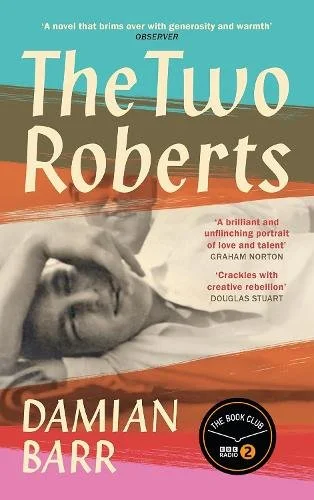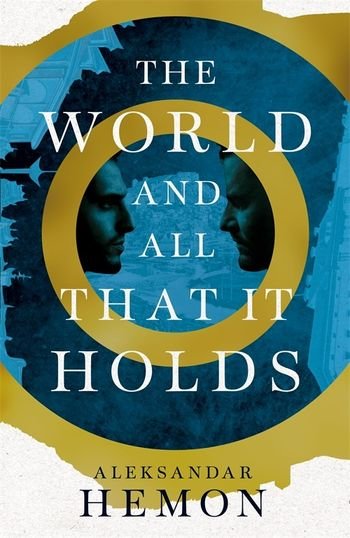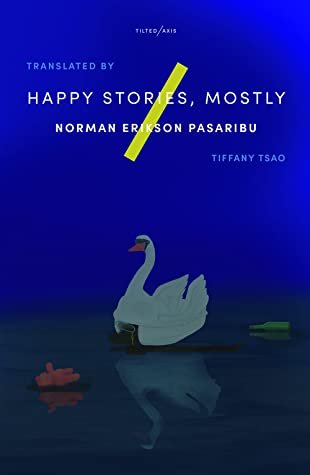This novel grabbed hold of my heart! It's so emotional but also so well crafted and intelligent. What a special debut novel! The story and plot are so gripping. It contains many surprises and I want to keep this as spoiler free as possible because there are twists that had my heart racing: moments of tragedy, moments of kindness, moments of horror and moments of absolutely beautiful tenderness. This is embodied by an array of well observed and totally believable characters. Many are privileged English schoolboys but within that sphere they are so diverse and fascinating – not least of all the two young men at the centre of this book. And what I think makes this novel so special is not just the historical subject matter of WWI and the people tragically caught in these circumstances, but the way Alice Winn has structured this book. It's so clever and adds so much to the story.
The novel begins in 1914 at an English boarding school in the countryside. We meet seventeen year old boys: Henry Gaunt and Sidney Ellwood. Gaunt has part German heritage and is more reserved, awkward and anti-war. Ellwood is part Jewish and is very popular and enthused to fight in the war. Neither of them are technically old enough to enlist, but, as with many young men back then, this did not stop them. They both love poetry (especially Ellwood who writes and recites it) and they've been harbouring a secret desire and love for one another. We follow as they separately go to war and the consequences of being at the centre of a conflict where millions and millions of lives were lost.
I was somewhat nervous going into this because I thought: do I want to read about war especially focusing on the point of view of privileged English schoolboys? But once I got into the story and got to know these characters I was completely enthralled. Part of what Winn shows so well is the way youth were manipulated into wanting to be remembered and glorified. This is what governments do to get the manpower for war and make young men enlist. At that tender age so many boys can be easily convinced to die for their country in order to be remembered forever. Part of this is national arrogance and believing they'd win the war right away. But there was also pressure from an organisation called The White Feather Movement which I hadn't heard of before this novel. These were groups of women that went around in public and any young man who looked fit enough to fight was handed a white feather to shame him into wanting to enlist. This was controversial even at the time – not least of all because sometimes feathers were given to soldiers on leave or veterans who were seriously wounded. So I was glad to learn about this element and strategy of war. And reading this book has made me want to read and discover more about this period of time.
Winn makes the characters of Gaunt and Ellwood feel so alive with their hesitancy around intimacy, their confused dreams about the future and what is possible for boys in their position with restrictions about what was socially allowed at the time. It was okay as long as the boys were popular and kept it behind closed doors, but they could not love each other openly. It feels so important for gay love tales to be inserted back into history through novels like these because these relationships did happen but they weren't often recorded or allowed to flourish because of social stigma. I won't reveal what happens between them or how their story together develops but it is so beautifully done. There are also many other really fascinating characters. Some are naively gun ho about fighting, some are understandably crippled by fear and the horror of what war looks like. There are bullies, there are hopelessly foolish boys, there are highly intelligent lads, there's a really interesting character with Indian heritage, there's a man from a working class background which contrasts sharply to most of the young men in this book and there is Gaunt's sister who is extremely intelligent and progressive but can't effect change because of the restricted possibilities for women at that time. All these characters are so convincing in their dialogue and actions while also showing the influence that classism, racism, sexism and homophobia has on their lives. The story depicts how these things still have an effect even on the battlefield where soldiers struggle to survive from moment to moment. The novel also demonstrates the tragic gulf in understanding between those who know what it's like at the front verses people who've remained in England. But also, even before the scenes at war the story shows the sinister bullying culture in English boarding schools where young boys are literally tortured in a perverse cycle which is believed to build character.
Something so unique about this novel is how Winn structures the story because it is not just a straightforward narrative but it's also composed of letters, articles and issues of the boarding school's published journal. And this is another reason why I was initially hesitant to read this book because I wasn't sure how these fictional newspaper articles could add to the story. But they definitely do and create such a powerful sense of the brutal consequences of war as some characters that the reader has grown to love or despise or even just know casually are listed under the casualties over time. To see them suddenly removed in black and white like this gives such a strong sense of what it must have been like at the time. But also, the gruelling task of soldiers writing letters to families to inform them of their husband's or sons' deaths while trying to make it personal. It is heart wrenching and so effective.
Running through this novel is the power of poetry. Not just in its creation and the ways it can encapsulate experience like no other but what effect war has upon the creative imagination. It's made me keen to read more by and about great gay poets of WWI such as Siegfried Sassoon. It's also made me keen to read George Eliot's novel Adam Bede. I've read a number of books by Eliot but not that one. And I won't explain how that novel has a role in this novel, but just read this novel and see. There's a really interesting prisoner of war camp section – again, no spoilers, but it's so suspenseful and vivid. And it's so compelling how it elicits sympathy for the German soldiers in this section who were technically overseeing the prisoners but many of these guards were less well fed and less experienced than their prisoners who relentlessly bullied them. Because no matter which side of the conflict these young men (who were still boys really) were on, they were led by their countries into perilous conflict and thousands were slaughtered. There's also a fascinating narrative shift at one point showing the other side of the battlefield and the other boys caught up in this hellish conflict.
It all comes together to create a war story and a love story like no other. And I loved it. There's so much more to say about this novel, but it's a masterful accomplishment. So impressive for a first novel – although, from what I gather from interviews Winn has been writing for a long time. I think it shows that this is a writer who has honed her craft and told a story she feels so passionately about. I don't want to make any assumptions, but I know Winn is married to a man so for a presumably heterosexual woman to write so beautifully about such complex gay characters with depth and understanding and to write about their sexual and emotional relationships so convincingly is stunning. I'd also recommend reading “The World and All That It Holds” by Aleksander Hemon which, coincidentally, is also a story of WWI about two soldiers in love with each other, but it's in a very different setting and it also has a very different style and approach. It's also excellently done. However, “In Memoriam” is a novel that completely captured my heart and I know I'll remember it for a long time.






















